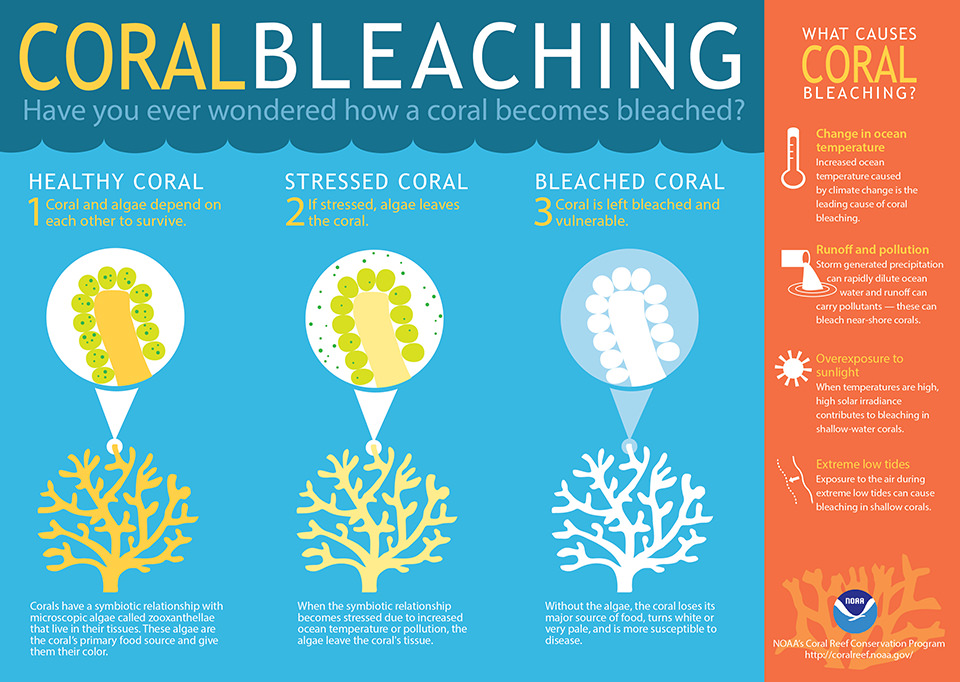Environment & Energy
Related: About this forumScientists - Expect 38% Bleaching/Loss Of All Earth's Coral Reefs By End Of 2015
Corals are bleaching across all the world’s oceans in only the third die-off of its scale in history, scientists revealed on Thursday. El Nino and a Pacific warm water mass known as “The Blob” are combining with human-caused climate change to drive record high ocean temperatures.
These hostile conditions are expected to deplete more than 38% of the world’s reefs by the end of 2015, according to the US-based National Oceanic and Atmospheric Administration (NOAA).
Recent damage to corals in the Caribbean follows bleaching in the Pacific and Atlantic oceans earlier in the year, confirming the phenomenon as global in scope. It has knock-on effects for species that rely on healthy corals for food, as well as for people who make a living from tourism or fishing.
“What really has us concerned is this has been going on for a year and is likely to last another year,” said NOAA coral specialist Mark Eakin.
EDIT
http://www.climatechangenews.com/2015/10/08/warming-seas-devastate-coral-reefs-in-global-bleaching-event/
think
(11,641 posts)hatrack
(59,583 posts)Read "The Murderer" by Ray Bradbury for further details.
OKIsItJustMe
(19,938 posts)Bleaching ≠ Death
http://oceanservice.noaa.gov/facts/coral_bleach.html
[font size=4]When corals are stressed by changes in conditions such as temperature, light, or nutrients, they expel the symbiotic algae living in their tissues, causing them to turn completely white.[/font]
[font size=3]
Can coral survive a bleaching event? If the stress-caused bleaching is not severe, coral have been known to recover. If the algae loss is prolonged and the stress continues, coral eventually dies.
Warmer water temperatures can result in coral bleaching. When water is too warm, corals will expel the algae (zooxanthellae) living in their tissues causing the coral to turn completely white. This is called coral bleaching. When a coral bleaches, it is not dead. Corals can survive a bleaching event, but they are under more stress and are subject to mortality.
In 2005, the U.S. lost half of its coral reefs in the Caribbean in one year due to a massive bleaching event. The warm waters centered around the northern Antilles near the Virgin Islands and Puerto Rico expanded southward. Comparison of satellite data from the previous 20 years confirmed that thermal stress from the 2005 event was greater than the previous 20 years combined.
Not all bleaching events are due to warm water.
In January 2010, cold water temperatures in the Florida Keys caused a coral bleaching event that resulted in some coral death. Water temperatures dropped 12.06 degrees Fahrenheit lower than the typical temperatures observed at this time of year. Researchers will evaluate if this cold-stress event will make corals more susceptible to disease in the same way that warmer waters impact corals. [/font][/font]
